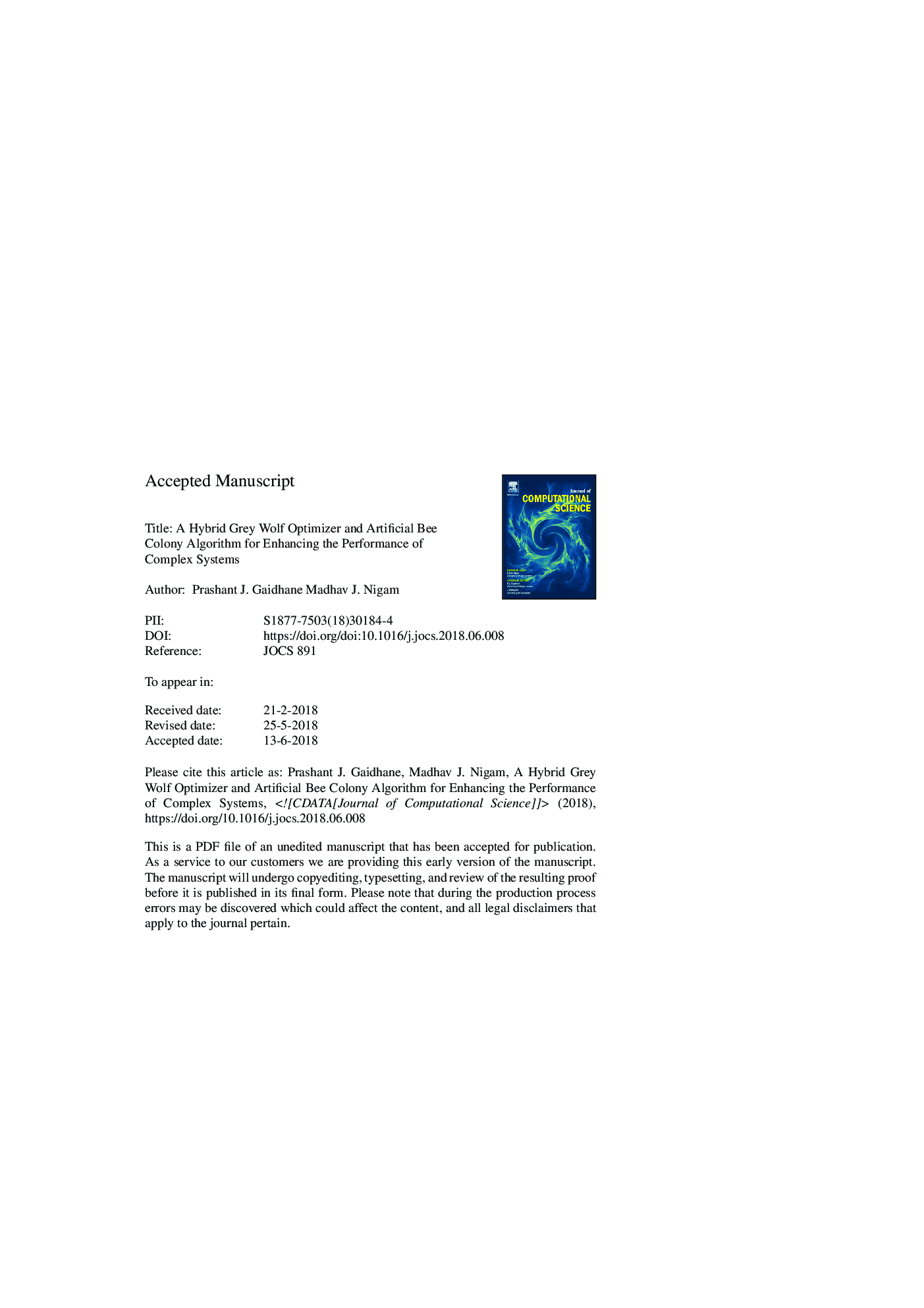| Article ID | Journal | Published Year | Pages | File Type |
|---|---|---|---|---|
| 6874306 | Journal of Computational Science | 2018 | 33 Pages |
Abstract
In this paper, a novel hybrid algorithm based on grey wolf optimizer (GWO) and artificial bee colony (ABC) algorithm called GWO-ABC is proposed to inherit their advantages and overcome their drawbacks. In GWO-ABC algorithm, wolves adopt the information sharing strategy of bees to promote their exploration ability while wolves keep their original hunting strategy to retain exploitation ability. Moreover, a new method based on chaotic mapping and opposition based learning is proposed to initialize the population. The aim for this new initialization method is to generate an initial population with already better individuals to set a solid ground for rest of the GWO-ABC algorithm to execute. The sole motivation behind incorporating changes in GWO is to help the algorithm to evade premature convergence and to steer the search towards the potential search region in faster manner. To assess the performance of the GWO-ABC, it is tested on a test bed of 27 synthesis benchmark functions of different properties; and result are compared with 5 other efficient algorithms. From the analysis of the numerical results, it is apparent that the projected changes in the GWO ameliorate its overall performance and efficacy especially while dealing with noisy (problem with many sub-optima) problems. Furthermore, GWO-ABC is applied to design an optimal fractional order PID (FOPID) controllers for variety of typical benchmark complex transfer functions and trajectory tracking problem of 2 degree-of-freedom (DOF) robotic manipulator. All simulation results, illustrations, and comparative analysis establish the GWO-ABC as viable alternative to design a controller with optimal parameters and enhance the performance of complex systems.
Related Topics
Physical Sciences and Engineering
Computer Science
Computational Theory and Mathematics
Authors
Prashant J. Gaidhane, Madhav J. Nigam,
